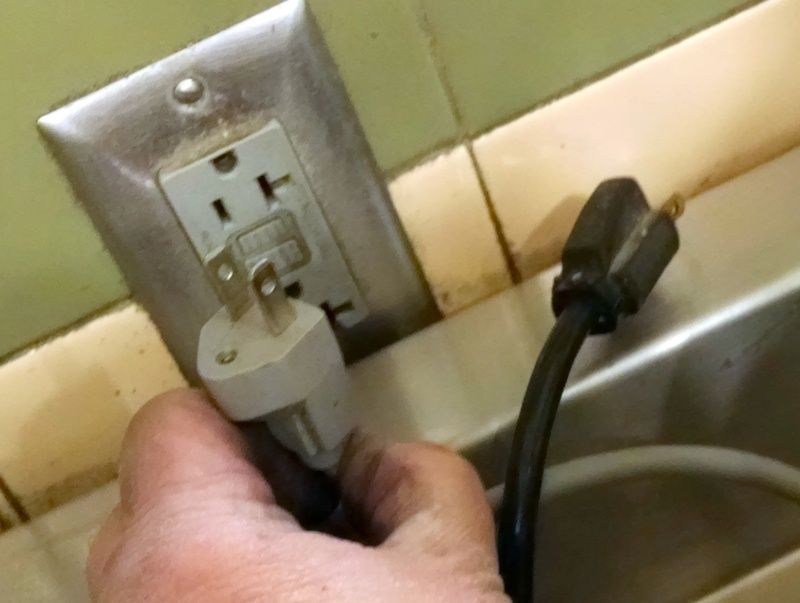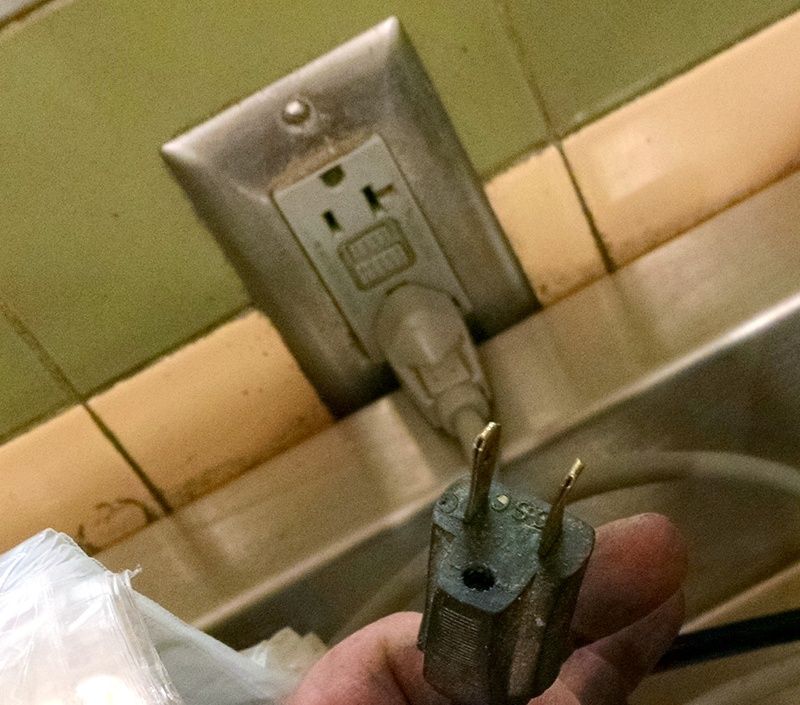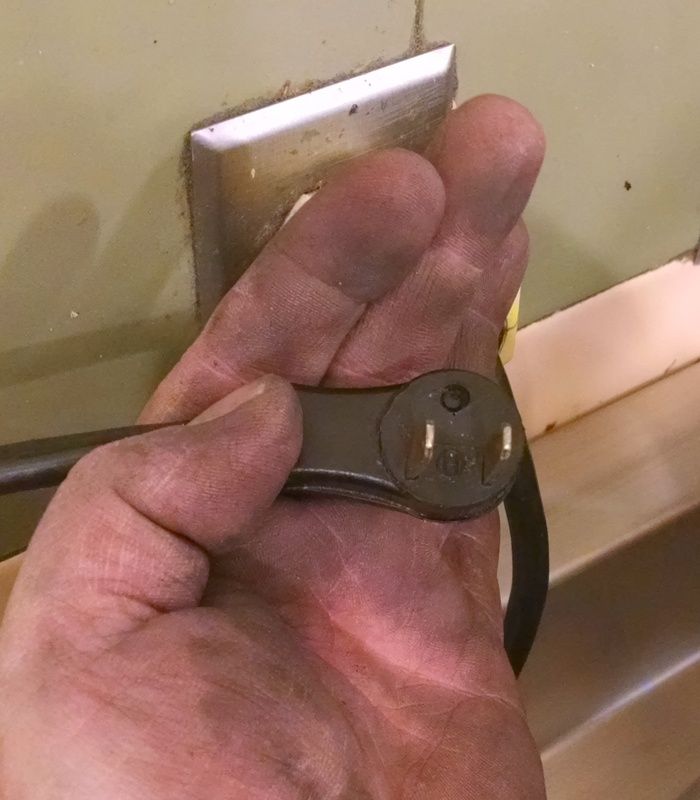- Location
- Tennessee NEC:2017
- Occupation
- Semi-Retired Electrician
Yep, takes the arguement out of "I am afraid that the GFCI will trip and I will not know it".
Yeah, that alarm works well when you are away!
Yep, takes the arguement out of "I am afraid that the GFCI will trip and I will not know it".
Yeah, that alarm works well when you are away!
So I assume your own refrigerator is on UPS and generator with so during a power company outage you are not there for your food stays fresh.
So I assume your own refrigerator is on UPS and generator with so during a power company outage you are not there for your food stays fresh.



They did away with all single receptacle exceptions for a dedicated appliance back in 2002 or 2005 NEC. For good reason I believe - many had figured out that single receptacle for the freezer, garage door opener, etc. doesn't trip like the others do and they just add a three way adapter or power strip to them and use that outlet instead of the others.I have been somewhat apprehensive to put a fridge, furnace, sump pump and similar devices on a GFCI protected circuit but because of the possibility of the device nuisance tripping. Food spoilage, pipes freezing, basements flooding, causing extensive looses is a possibility. Would there be a difference if the outlet was a single outlet that has the ability to supply only one device rather than a duplex that a second device could be plugged in?
AFCI sort of has other unresolved issues with some people, but GFCI protecting a homeowner from a missing EGC in the power cord (happens a lot) and possible standing on a grounded floor (especially in a garage or basement) barefoot when they touch the energized refrigerator is well worth it IMO. You can get the mentioned audible alert GFCI receptacles, or even better yet an add on temperature alarm for your refrigerator or freezer if you don't want to loose thousands of dollars of food. Even without GFCI protection, a failed compressor will leave you with a warm freezer and same losses.I'm not referring the potential of an overload but as a result of nuisance tripping of an AFCI at @ 5ma.and causing hundreds if not thousands of dollars in looses.
A refrigerator will stay cold for quite a while if the door doesn't get opened, especially one that is full of food. A freezer may take days to thaw if it never gets opened.Yeah, that alarm works well when you are away!
I agree, missing ground pins on supply cords is probably one of the biggest driving factors for GFCI protection rules involving 15/20 amp 120 volt receptacles.The thing is, GFCIs are pretty well made now as far as not tipping falsely.
The NEC has been requiring GFCIs in more locations all the time and my experience has been that when they are tripping it is a circuit or appliance issue that should trip it.
My own basement sump pump is on a GFCI with no issues, if the GFCI starts tripping I am going to take that as a sign the pump is failing.
All 15 & 20 amp, 125 volt receptacles in commercial kitchens must be GFCI protected, including refrigerators. I am not seeing a lot of problems with this. On the other hand I always find commercial kitchen equipment with broken grounding pins on the plugs. For this reason alone I think GFCI use is a great addition to safety.
The following pictures are ones I took at one deli, the first two are for meat slicers.


The picture below is the cord for an under-counter refrigerator. Seems like a GFCI is a good idea.

